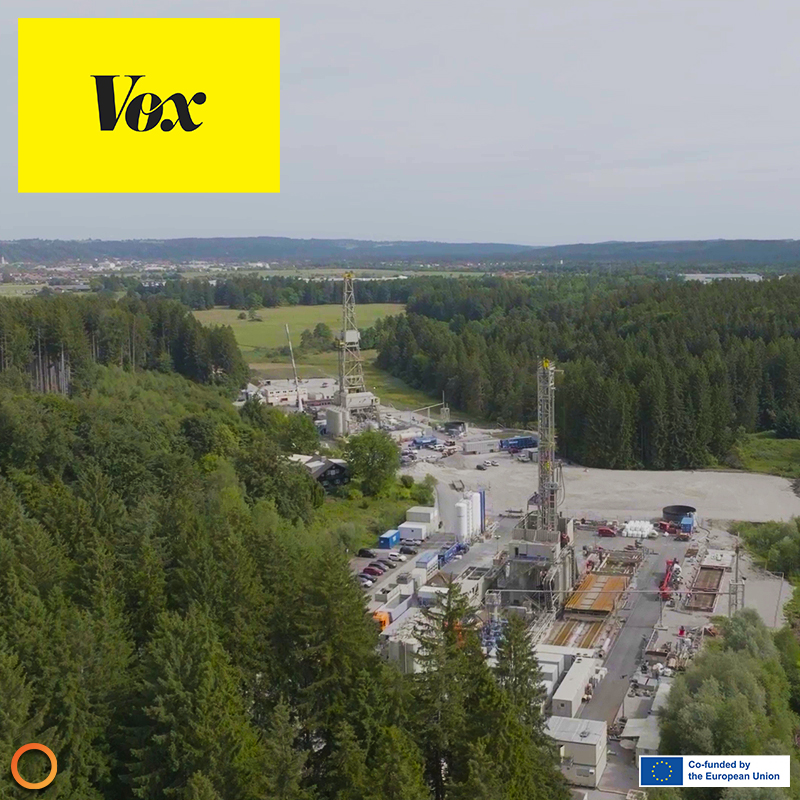Advisory board chair for Eavor Jesse Jenkins and fellow ZERO Lab team members Qingyu Xu, Aneesha Manocha, and Neha Patankar published a report in conjunction with Princeton University and grant support from Google Inc. on System-level Impacts of 24/7 Carbon-free Electricity Procurement. The report was published on November 16th, 2021.
The report identifies the purchase volume of US wind and solar resources, the accelerated deployment of clean energy to reduce GHG emissions, and the transformation of the energy sector in relation to carbon-free electrification.
Noted as one of many motivations, the report states “During times when the wind isn’t strong or the sun doesn’t shine, voluntary buyers have to rely on carbon-emitting power plants such as coal or gas-fired generators.”
Continued, “Additionally, some buyers procure ‘renewable energy certificates or RECs, from locations far away from their consumption and unbundled from long-term electricity purchases. This practice de-links generation and consumption in both space and time, provides less revenue certainty for clean energy projects, and creates a more tenuous link between buyers and the clean energy they claim to consume.”
Among many other motivations, the ZERO Lab team focused on the impacts of 24/7 carbon-free electricity procurement as it relates to emissions reductions, the transformation of the electricity sector through advanced long-duration energy storage technologies, and the associated premium for early market leaders in pursuit of making alternative clean technologies more cost-effective in the future.
Key findings
At 100% procurement of 24/7 carbon-free electricity, can eliminate carbon dioxide emissions associated with a buyer’s electricity consumption. The report found that CO2 emissions associated with electricity consumed by participating customers were lower than 100% annual matching due to better alignment between electricity consumption and generation, resulting in a reduced period of reliance on electricity from the grid.
24/7 carbon-free electricity procurement can drive greater system-level emissions reduction than 100% annual matching if the CFE target is high enough.
24/7 carbon-free procurement drives early deployment of advanced ‘clean firm’ generation and long-duration energy storage, creating initial markets for deployment, innovation, and cost reductions that make it easier to follow the path of 100% carbon-free electricity.
24/7 carbon-free electricity procurement better matches participating demand during periods of limited supply, thus driving significantly more retirement of natural gas generation capacity than 100% annual matching.
24/7 carbon-free procurement comes at a significant cost premium relative to 100% annual matching. The report identified that reaching 100% carbon-free electricity costs 39% more for business as per usual electricity costs in California. With only current mature technologies in California, reaching 100% carbon-free electricity costs 64% more. Targeting 98% carbon-free electricity can be significantly less costly than 100%.
As noted in part of the report implications, “Electricity systems are now at a pivotal point where the deployment of clean firm resources and long duration electricity storage is needed this decade to drive maturation and cost reductions and prepare for wider deployment in the 2030s and 2040s. If proactive investment in advanced technologies is not made soon, it is highly likely that these resources will not be prepared to scale when needed to ensure reliability and affordability and reach 100% carbon-free grids”.
To read more of the report and its methodologies, the ZERO Lab report, System-level Impacts of 24/7 Carbon-free Electricity Procurement is available for download.
Citations: Xu, Q., Manocha, A., Patankar, N., and Jenkins, J.D., System-level Impacts of 24/7 Carbon-free Electricity Procurement, Zero-carbon Energy Systems Research and Optimization Laboratory, Princeton University, Princeton, NJ, 16 November 2021.



















